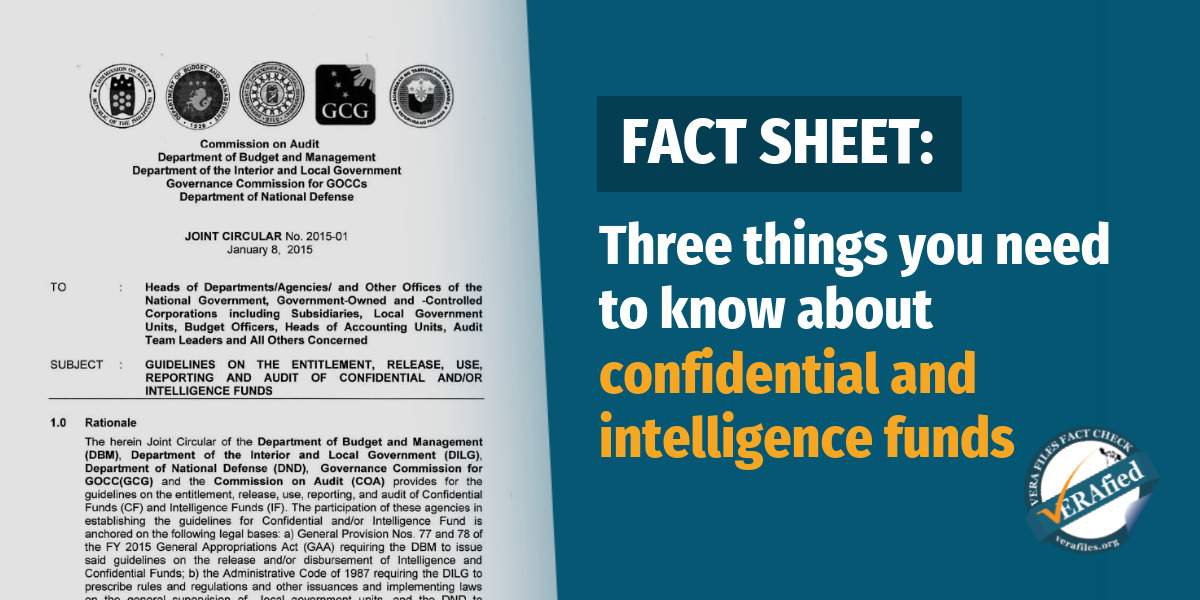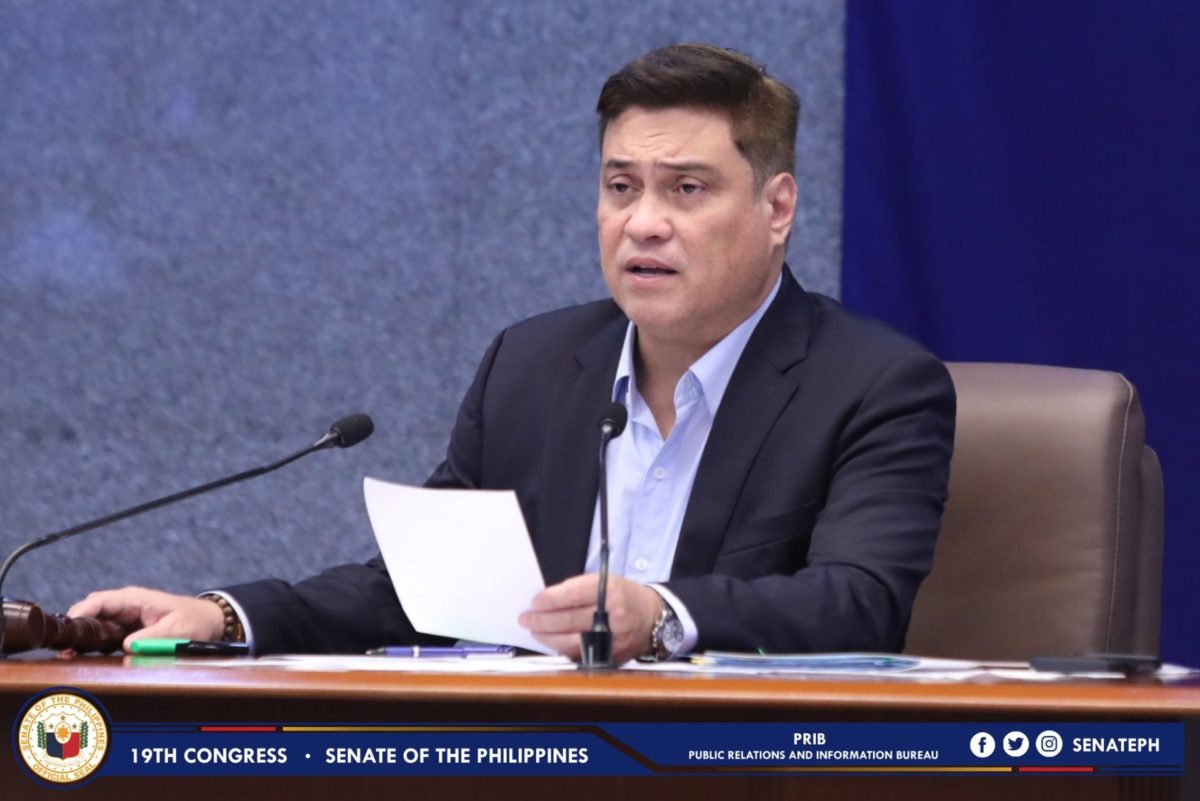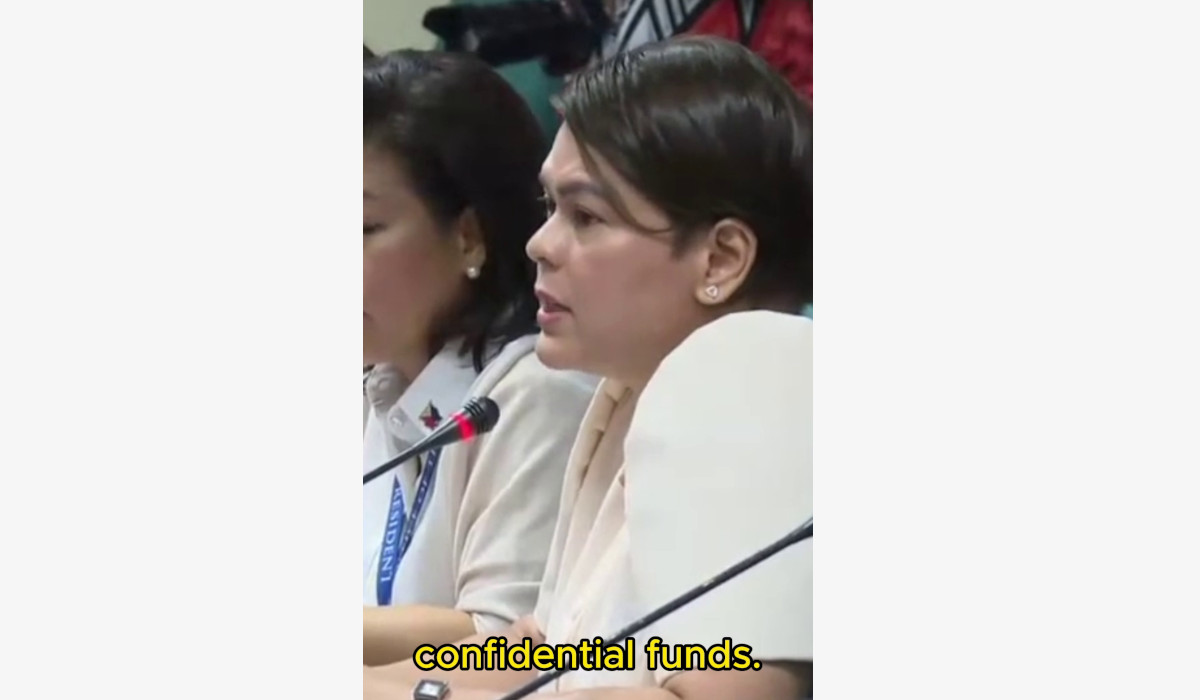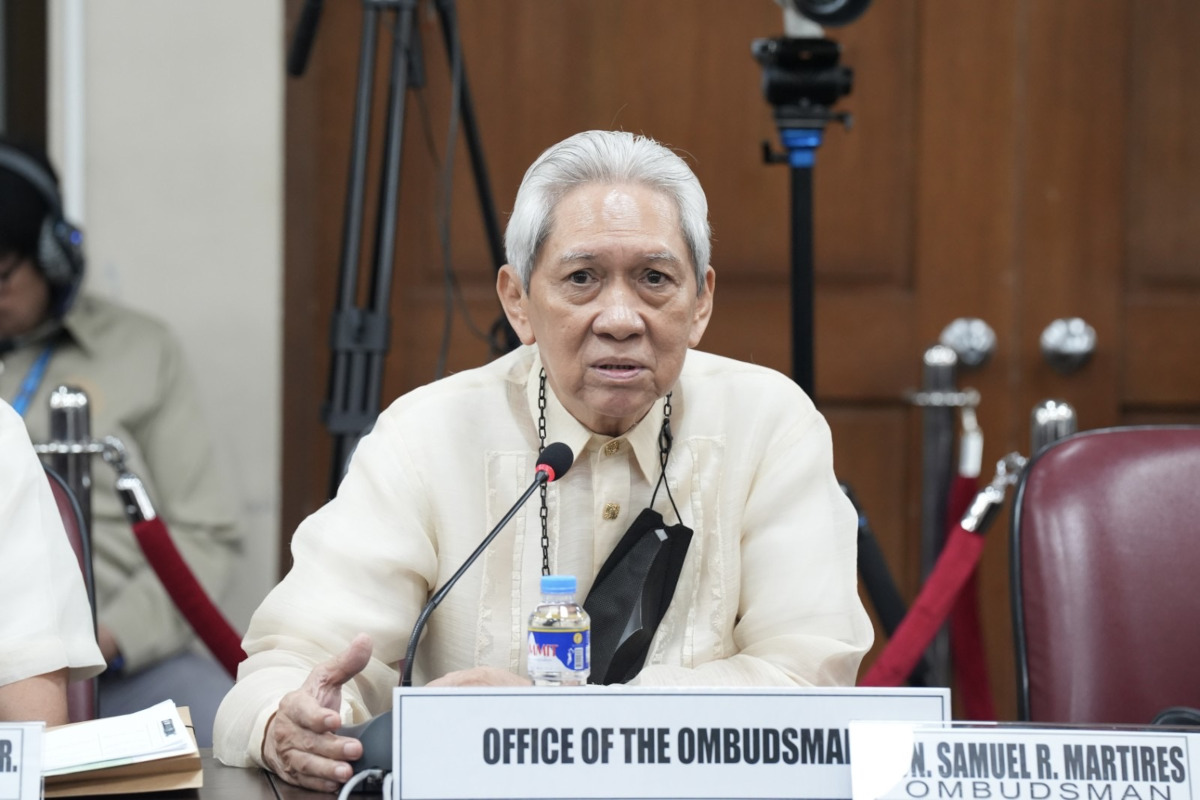The Senate approved on Nov. 23 the proposed P5.27 trillion national budget for 2023. It realigned at least P170 million in confidential funds of various government agencies to their maintenance and other operating expenses.
The minority bloc in the chamber had raised concerns about the P9.29 billion in confidential and intelligence funds (CIFs) Malacañang initially proposed, particularly those in the budget for the Office of the President and the Department of Education (DepEd).
While the P4.5 billion in CIFs at the disposal of President Ferdinand Marcos Jr. were left untouched, Vice President Sara Duterte-Carpio’s P150-million proposed confidential funds under the DepEd were cut down to P30 million.
Senate President Juan Miguel Zubiri said in a Nov. 7 press briefing that he had no problem with confidential funds, saying DepEd can use these to repair classrooms destroyed by typhoons.
What are CIFs and for what can these be used? Here are three things you need to know:
1. What is the difference between confidential and intelligence funds?
According to a set of guidelines from the Commission on Audit (COA), confidential funds are lump sum amounts provided for expenses related to “surveillance activities in civilian government agencies” to support their mandate or operations.
Intelligence funds, on the other hand, are disbursements for “intelligence information gathering activities of uniformed and military personnel and intelligence practitioners” that have a direct impact on national security.
COA issued these guidelines in 2015 together with the Department of Budget and Management, Department of the Interior and Local Government (DILG), Department of National Defense, and Governance Commission for Government-Owned and Controlled Corporations (GCG) through Joint Circular No. 2015-01.
It defines intelligence practitioners as experts designated and authorized to gather information for government agencies, including the DND, the Armed Forces of the Philippines, the Philippine National Police, among others.
Under the general guidelines, national government agencies are provided a budget for CIFs under the General Appropriations Act (GAA) or the annual expenditure program of the government.
Local government units (LGUs) with peace and order as a priority concern may be given confidential funds if there is a specific appropriation in their annual budget for programs on this. These programs serve as a basis for the computation of allowable confidential funds for them.
Government-owned or controlled corporations (GOCCs), on the other hand, may only be allotted confidential funds with authorization from the GCG.
2. Where and how can CIFs be used?
The 2015 COA guidelines list specific activities where CIFs can be used. Contrary to Zubiri’s claim, these activities are limited to those concerning peace and order as well as national security.
The document specifically states that funds may not be used to pay for salaries and allowances of employees and officials unless authorized by law. It also prohibits the allocation of CIFs for the construction or acquisition of buildings and housing structures, and for representation, consultation fees, or entertainment expenses.
See the infographic below:
All CIF expenses must be supported by a physical and financial plan where the proposed amount for each program, project and activity is indicated.
For national government agencies, CIF appropriations should be included among the items to be released upon approval of the GAA. Utilization of the funds is subject to the approval of the department secretary or agency head.
Release of intelligence funds, however, needs prior approval of the president.
Similarly, presidential approval is required before the release and utilization of confidential funds for GOCCs. For LGUs, a resolution approved by two-thirds of the members of the local Peace and Order Council is required.
In instances when an LGU needs additional confidential funds, a duly authorized supplemental budget must be approved by the DILG secretary.
3. How are CIFs audited and monitored?
The joint circular requires all agencies to submit quarterly accomplishment reports on the use of CIFs. All disbursements need to be supported by documentary evidence of payment and certification of the accountable officer signed under oath.
“The utilization of such funds is generally confidential and classified by nature, which requires not only strong internal controls in the release and utilization thereof, but also strict accounting and auditing rules to prevent mishandling or improper application of the funds,” the document states.
If the funds are misused, the budget officer, chief accountant, treasurer and project officer may be held liable.
In an Oct. 3 statement, Albay Rep. Edcel Lagman called for cuts in the CIFs as proposed in the 2023 budget as he warned of the potential for corruption.
“Since the utilization of confidential and intelligence funds are shrouded in mystery and the supposed audit by (COA) could not be disclosed to the Congress and the public, these funds breed corruption, and the more enormous the funds are, the greater the magnitude is for the possibility of graft,” he stated.
Likewise, Senate Minority Leader Aquilino “Koko” Pimentel urged Congress not to start the practice of providing CIFs to agencies such as the Office of the Vice President, DepEd and the Office of the Solicitor General which had not been previously allotted such funds.
Amid these calls, Zubiri sponsored Senate Resolution No. 302 on Nov. 21 creating a Select Oversight Committee on Confidential and Intelligence Funds. The Senate president will chair the committee with Pimentel and other senators – Sonny Angara, Ronald “Bato” Dela Rosa and Majority Leader Joel Villanueva – as members.
Erratum: This article incorrectly stated that Sen. Aquilino “Koko” Pimentel is the Senate Majority Leader. He is the Senate Minority Leader. We apologize for the mistake.
Have you seen any dubious claims, photos, memes, or online posts that you want us to verify? Fill out this reader request form.
Sources
Department of Budget and Management, Senate approves 2023 General Appropriations Bill, Nov. 23, 2022
Senate Minority Bloc raises concerns on CIFs
- ABS-CBN News, Pag-alis ng P9.3-B ‘confidential funds’ itinutulak ng Senate minority, Nov. 16, 2022
- Manila Bulletin, Senate minority bloc vows to push for realignment of OVP, DepEd confidential funds, Nov. 15, 2022
- OneNews PH, Senate Minority Bloc Seeks Realignment Of Intel Funds, Nov. 16, 2022
Senate of the Philippines, Transcript of Interpellation Senator Risa Hontiveros with Senator Sonny Angara on DepEd Confidential Fund Amendment, Nov. 23, 2022
Senate of the Philippines, Transcription of Senate President Juan Miguel “Migz” Zubiri’s Press Conference, Nov. 7, 2022
Commission on Audit, Joint Circular No. 2015-01, Jan. 8, 2015
Official Website of Rep. Edcel Lagman, The 2023 national budget must be purged of unnecessary and excessive confidential and intelligence funds…, Oct. 3, 2022
Pimentel urged Senate to block CIFs of 3 agencies
- CNN Philippines, Pimentel wants to block confidential, intel funds of 3 agencies, Nov. 9, 2022
- Rappler, Pimentel attempts to strike out confidential funds of DepEd, OVP, OSG, Nov. 9, 2022
- Inquirer.net, Koko Pimentel to three gov’t agencies: Don’t start habit of secret, intel funds, Nov. 9, 2022
Senate of the Philippines, Senate Constitutes Special Oversight Committee for Confidential and Intelligence Funds, Nov. 21, 2022
Senate of the Philippines, Senate Resolution No. 302, Nov. 21, 2022
(Guided by the code of principles of the International Fact-Checking Network at Poynter, VERA Files tracks the false claims, flip-flops, misleading statements of public officials and figures, and debunks them with factual evidence. Find out more about this initiative and our methodology.)




